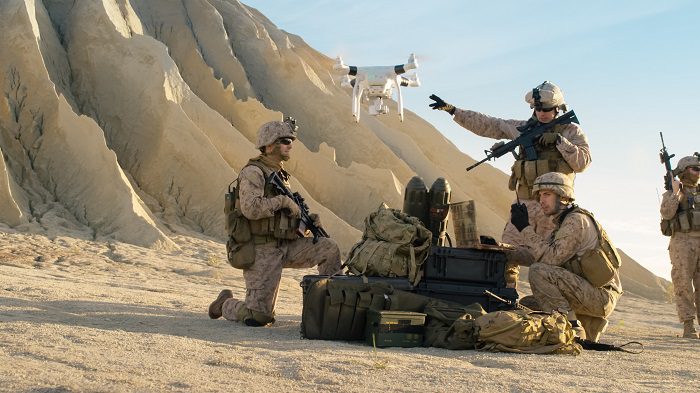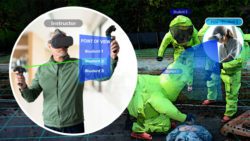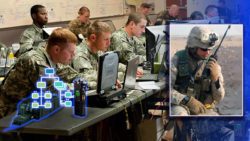Mike Farry, Principal Scientist and Vice President, Socio-Cognitive Systems, delivered an invited talk on the novel opportunities provided by robotic swarms at MIT Lincoln Laboratory’s Human-Machine Collaboration for National Security Workshop. Alongside other commercial, government, and academic contributors, Farry discussed how the massive potential of swarms can be best harnessed to bolster national security.
“The focus of my talk was how novel swarm capabilities—such as our Swarm Algorithms and Tactics for Urban Reconnaissance and Isolation (SATURN) effort—introduce new challenges. We’re not dealing with simple evolutionary advances here; rather, the novel capabilities afforded by swarms are introducing entirely new kinds of research into human-machine collaboration,” said Farry. “People are starting to use unmanned autonomous vehicles in creative ways, each of which has a different impact on national security. It is imperative that we study these new classes of challenges to avoid surprises from bad actors.”
Charles River Analytics is one of the “sprinter” teams selected for DARPA’s Swarm-Enabled Tactics (OFFSET) program. SATURN’s capabilities will provide resilient swarm behavior to decentralized, heterogeneous swarms of unlimited size, enabling our swarms to achieve military objectives despite interference from adversaries.
Farry said, “This decentralized method of operation enables swarms to independently provide mission support capabilities. But this independence must come with transparency about how individual vehicles, and the swarm as a whole, are meeting their objectives.” Effective human-machine teaming with drone swarms allows the swarm to perform risky missions, such as intelligence gathering and surveillance, keeping our Warfighters safer.
SATURN complements other techniques and applications Charles River has developed to support autonomous and unmanned systems, such as the MINOTAUR interface for controlling robotic leader-follower systems, the AMPT framework for supervising unmanned vehicles, and the CROWSNEST maritime traffic awareness solution for an unmanned surface vessel.



